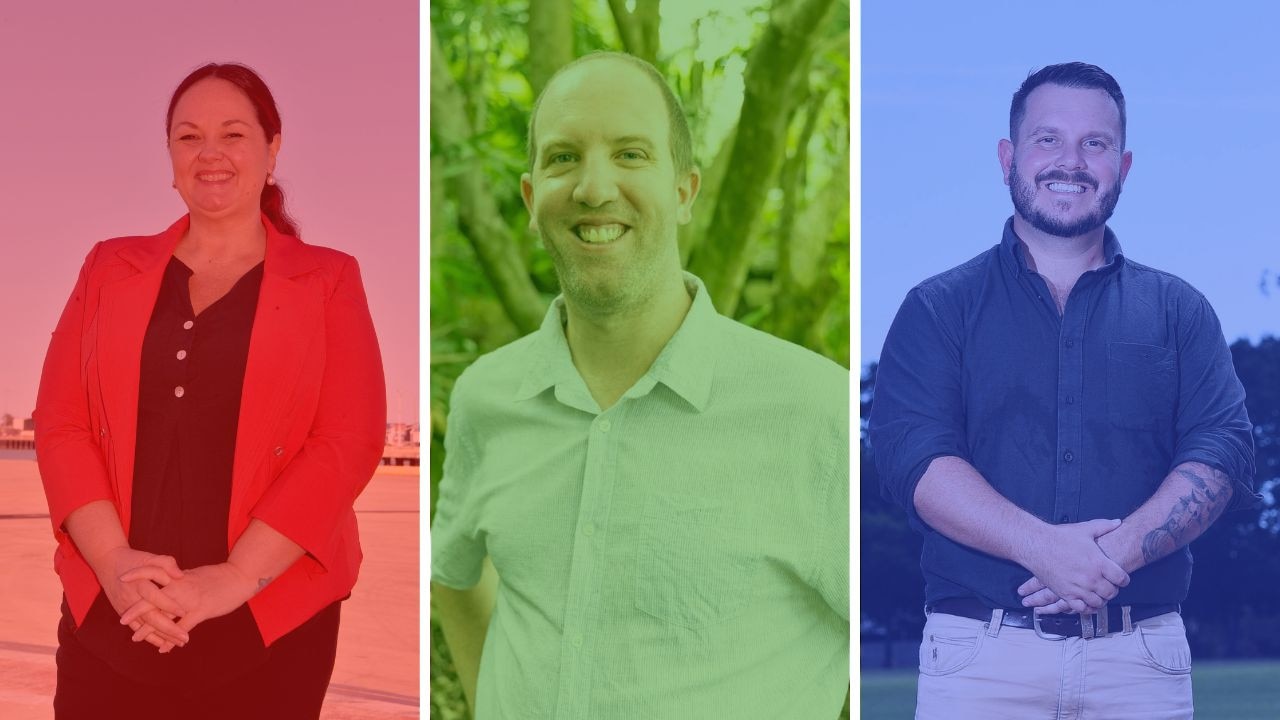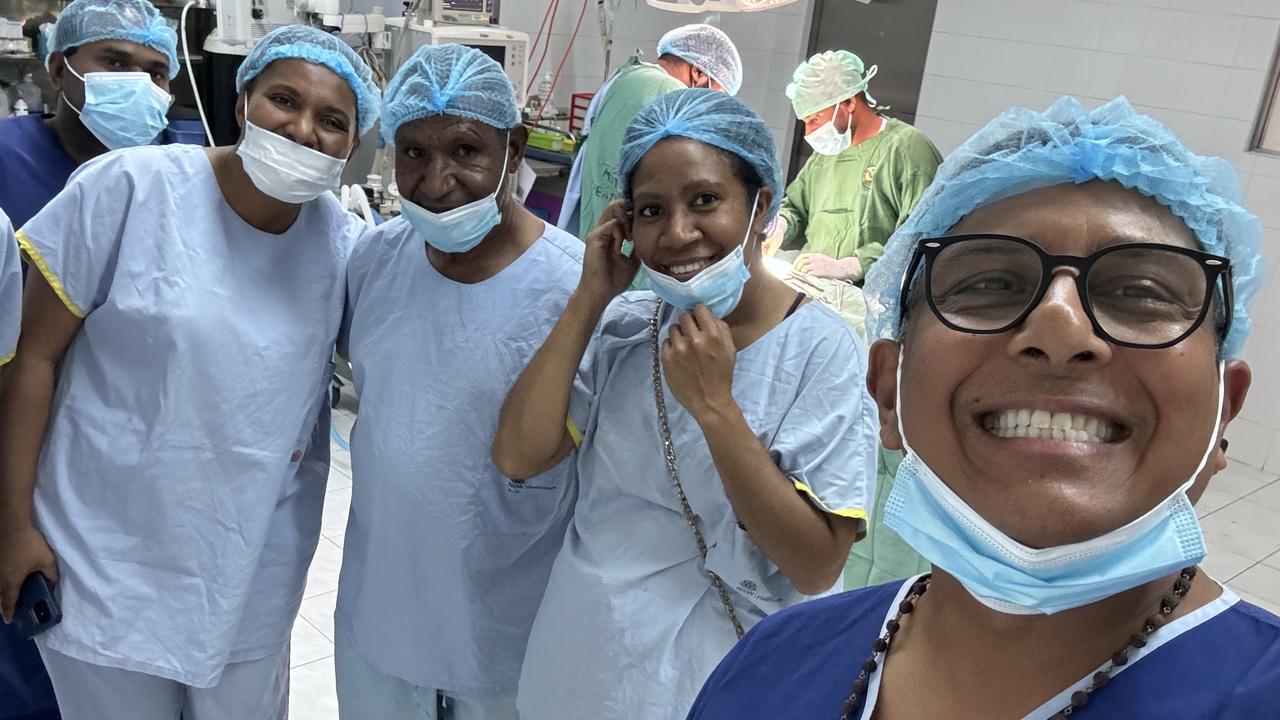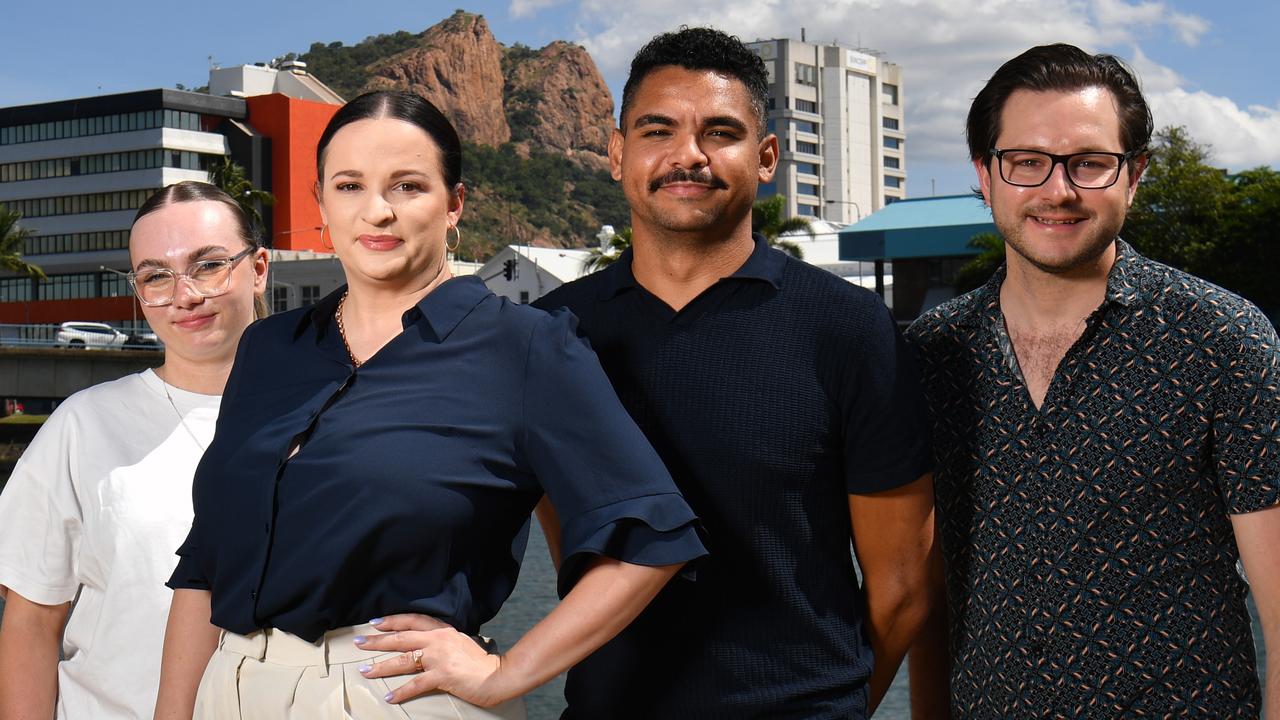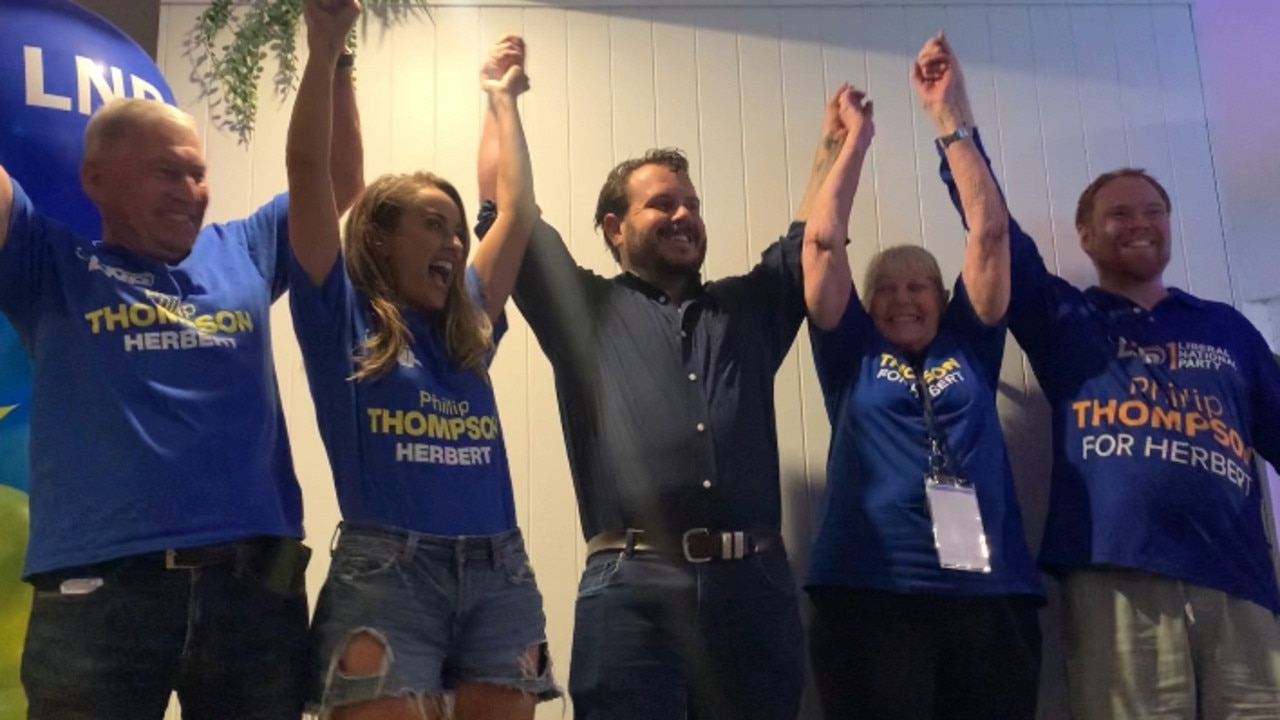The dying art of felt hat making – and the Deeragun man keeping it alive as the ‘Big Boi Hat Company’
A Townsville man is dedicating his time to preserving the traditional skill and keeping the Australian craft alive.
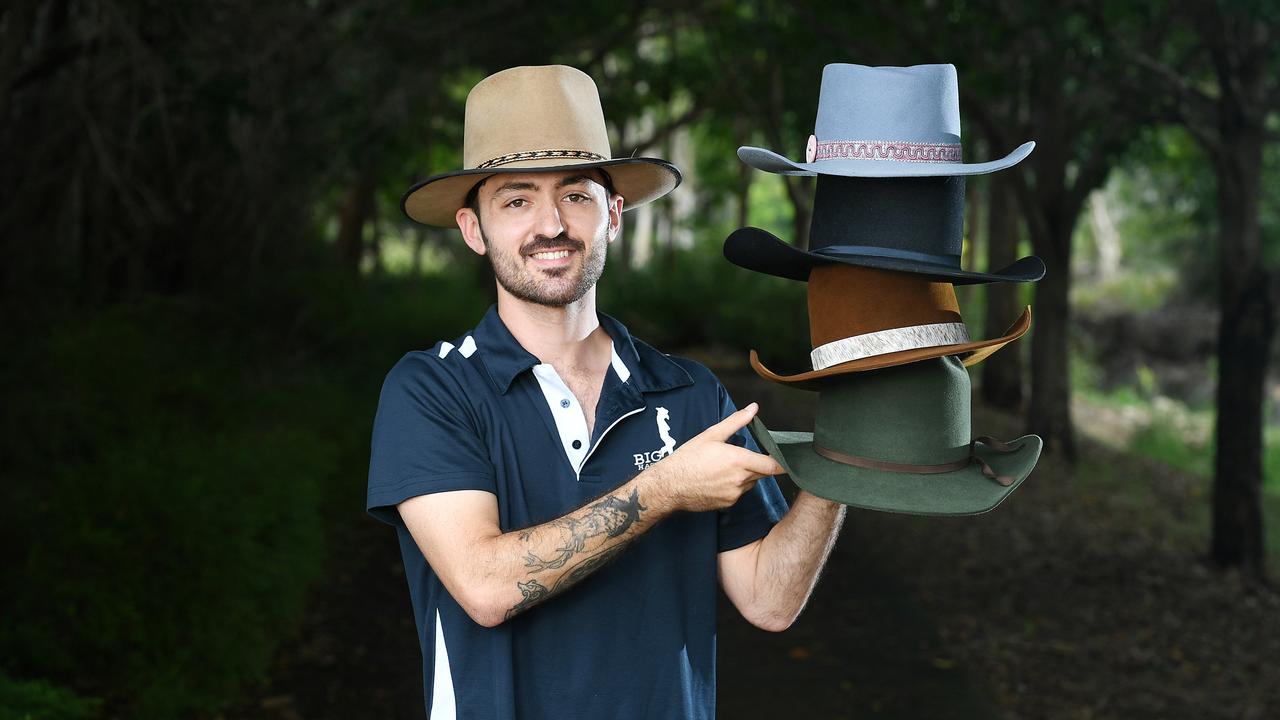
Townsville
Don't miss out on the headlines from Townsville. Followed categories will be added to My News.
Hat making is classed as a dying trade, but one 25-year-old is dedicating his time to preserving the traditional skill and keeping the Australian craft alive.
Deeragun man Liam Ervine grew up in New South Wales wearing a hand-me-down Akubra, but it wasn’t until he enlisted in the army and moved to Townsville that his interest in hats started.
“In the army, I was shown how to shape a slouch hat with hot water and sugar,” Mr Ervine said.
“We also learnt to use methylated spirits to re-stiffen hats. My love for hat shaping came from that time in the army.”
When Mr Ervine was medically discharged with a back injury, he found himself battling with the common veteran curse: too much time, and nothing to do.
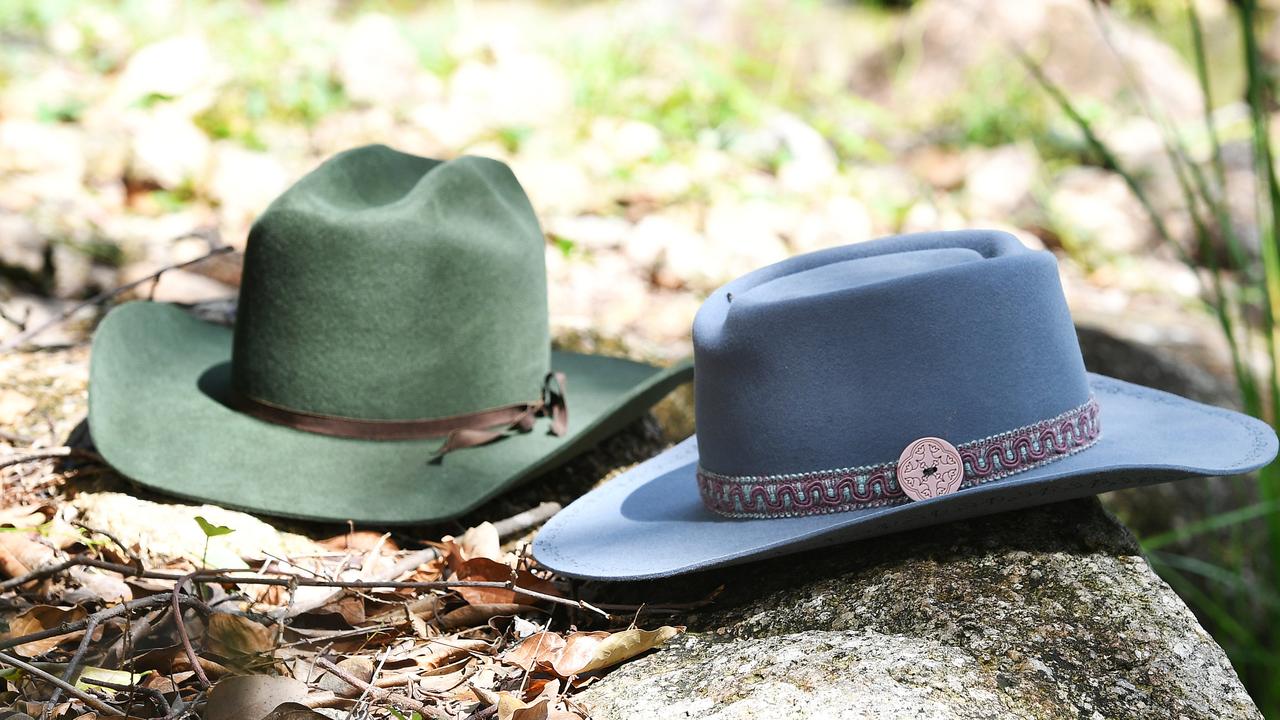
“I needed something to do and I saw a video and thought, I could do that,” he said of hat making.
“When I first started out I was using my own Akubras and reshaping them with a stovetop kitchen kettle, and it’s just been trial and error from there. Each time I make one is a little better than the last.”
Mr Ervine created his first hat from scratch in 2023, and his “side-hustle” Big Boi Hat Company was born.
Right now one of his main passions is Nutria hide, which he sources for the sole American company producing it: Sunrise Hat Supplies.
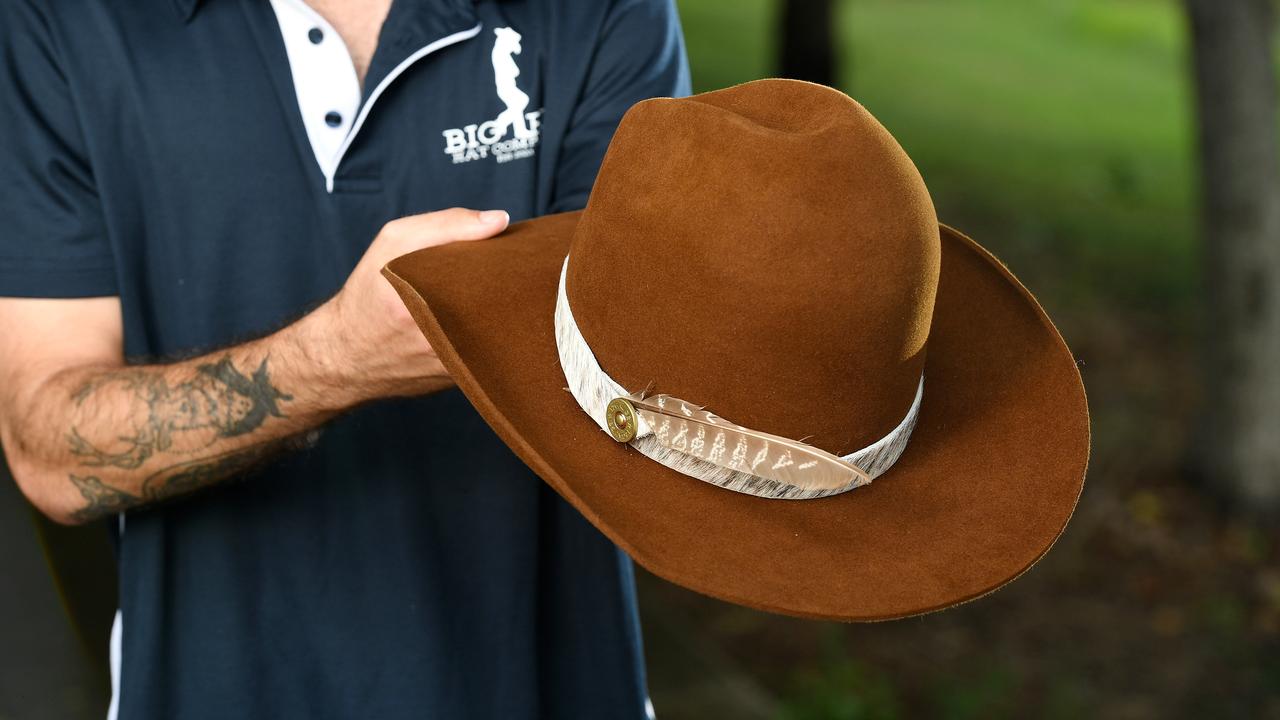
“I only work in rabbit felt or nutria felt,” Mr Ervine said.
“Nutria is an alternative hide, it’s a sustainable alternative to beaver felt.”
Nutria is an aquatic rodent from South America - a cousin to the famously cute capybaras, and guinea pigs – which made its way to the United States of America as part of the fur trade, where it was released into the Louisiana bayous to could help control aquatic weeds while also being a lucrative wild fur source.
Nutria has since been listed as one of the 100 worst invasive species in the world, a story similar to North Queensland’s very own cane toad.
The durable, water resistant nature of the nutria means it can outlast and outperform rabbit felt.
“My own hat is nutria and it’s been overseas with me, it’s been rained on a lot, and it’s completely fine and has held its shape,” Mr Ervine said.
“I’ve seen pieces of nutria that are 100 years old and they still look good. The people who buy from me, they appreciate something that’s handmade and they are looking for an item they can pass down to their kids.
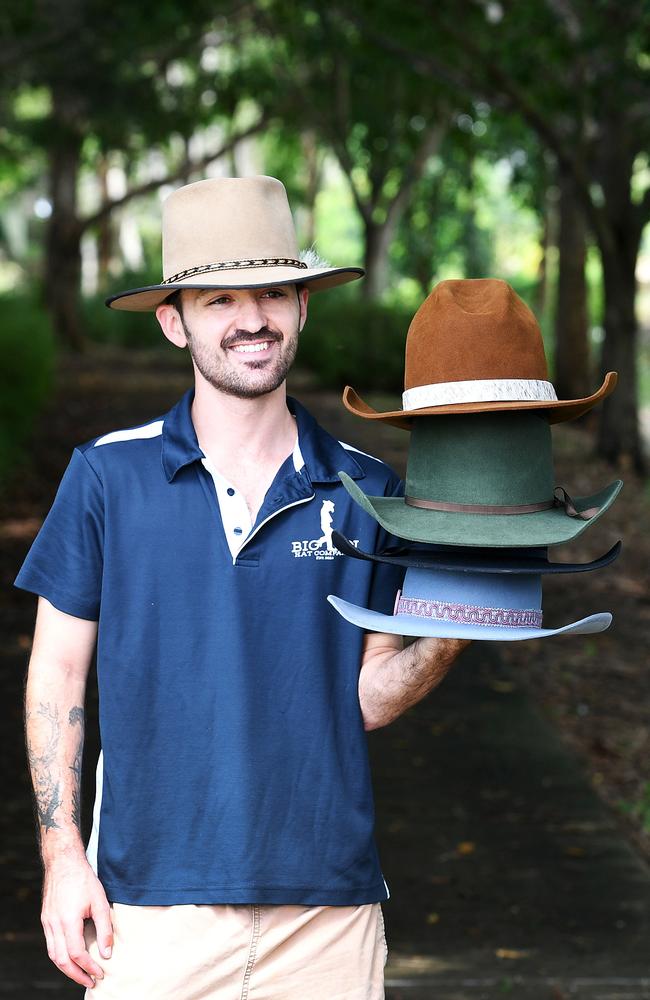
Heirlooms don’t come cheap – if you want to buy one of Mr Ervine’s ready-made hats, it’ll be around $350, if you want a custom rabbit felt you’re looking at $400, and a custom nutria is $850.
But interested buyers can take advantage of an Australia Day sale the Big Boy Hat Company is hosting this January, and snatch up a hat for $250.
“It takes about three days of work to make a hat,” Mr Ervine said.
“First I steam and block the felt, then I let it dry over a c`ouple of days, I cut the brim, sand it down and pounce it (sanding the felt to get a smooth feel), hand stitch the sweat band, shape it, and finish it off.”
In the last 24 months, Mr Ervine has sold 12 hats, but the bulk of his work comes from restorations and cleaning.
“I do get a lot of people asking me to fix holes and things in their old hats, because I’m actually the only one in the area who does restoration work,” he said.
“Do this work, you get to meet that old dude who’s got an Akubra he’s been hanging onto for 50 years … I also get a lot of people who want hats reshaped so the brim and crown match their face shape.”
While the bulk of his work is in western or ‘cowboy’ style hats, Mr Ervine said he’s willing to make fedoras, top hats, homburgs, and more.
“What I love about making the hats is the creative process, being able to sit back and say ‘I did that’,” he said.
“Felt hat making is classed as a dying trade, there are about 30 of us left in the whole country who do it and I’d probably be the youngest one in the group.”
Other ‘endangered trades’ include saddle making, black smithing, scientific glass blowers, sewing machine repairers, stone masons, analog sound engineers and more.
The Big Boi Hat Company can be found at: bigboihatcompany.square.site
More Coverage
Originally published as The dying art of felt hat making – and the Deeragun man keeping it alive as the ‘Big Boi Hat Company’




